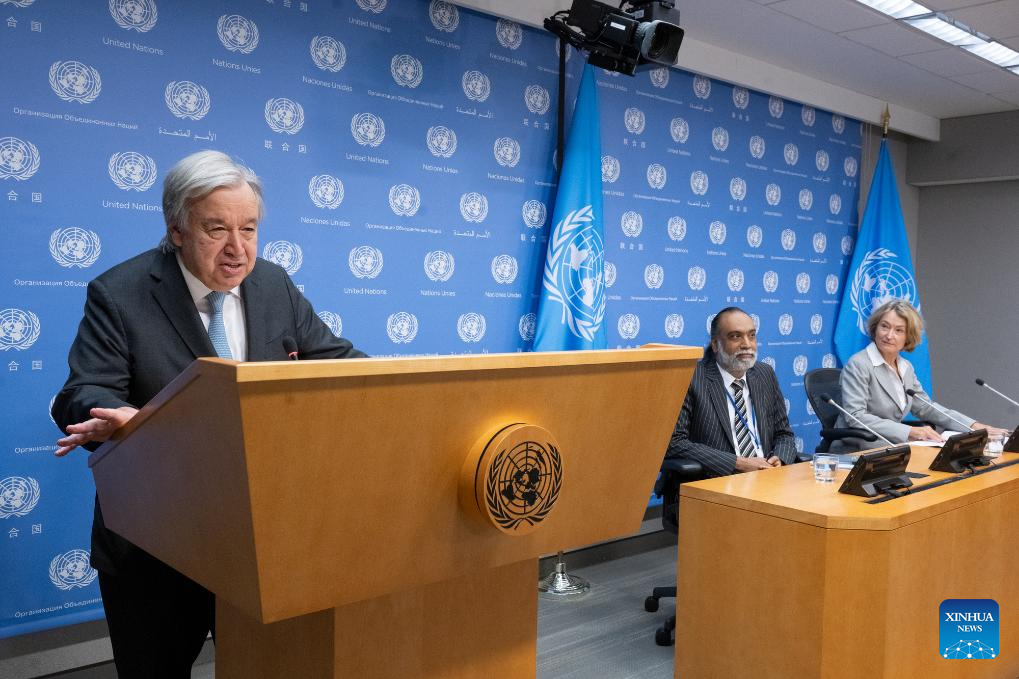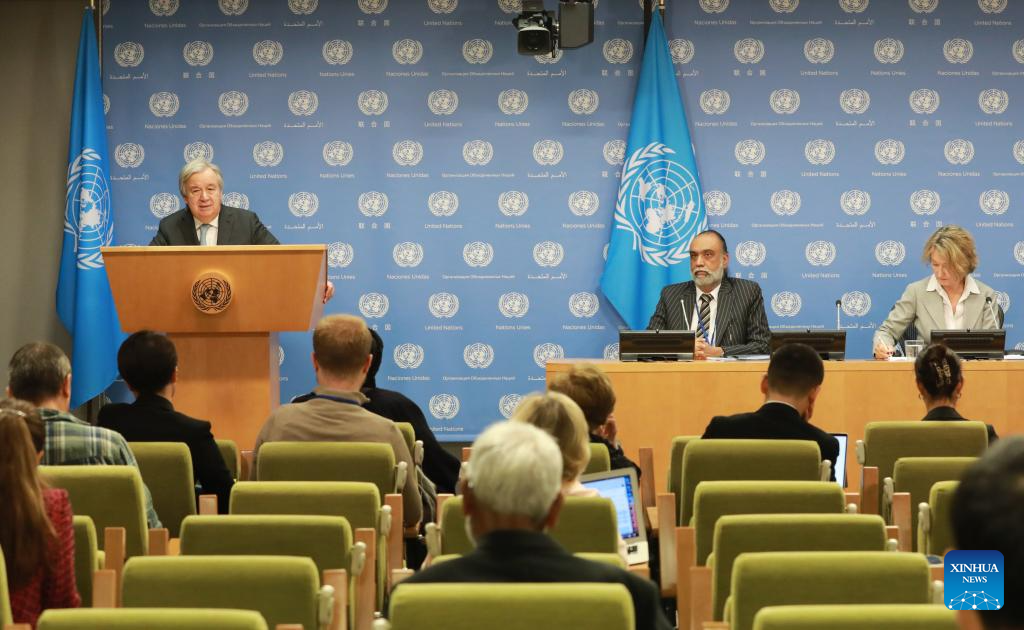
UN Secretary-General Antonio Guterres (L) speaks at a press conference launching High-Level Advisory Body on Artificial Intelligence at the UN headquarters in New York, on Oct. 26, 2023. Guterres on Thursday launched a High-Level Advisory Body on artificial intelligence (AI) to improve global governance of the fast-evolving new tools. (Eskinder Debebe/UN Photo/Handout via Xinhua)
UNITED NATIONS, Oct. 26 (Xinhua) -- UN Secretary-General Antonio Guterres on Thursday launched a High-Level Advisory Body on artificial intelligence (AI) to improve global governance of the fast-evolving new tools.
AI could power extraordinary progress for humanity. At the same time, it could bring harm, he told a launching event.
From predicting and addressing crises to rolling out public health services and education services, AI could scale up and amplify the work of governments, civil society and the United Nations across the board. The transformative potential of AI for good is difficult even to grasp. And the world is in urgent need of this enabler and accelerator, he said.
As many countries are already reeling from the impact of the climate crisis, the 2030 Agenda is in deep trouble. AI could help to turn that around. It could supercharge climate action and efforts to achieve the 17 Sustainable Development Goals (SDGs) by 2030, he said.
But all this depends on AI technologies being harnessed responsibly, and made accessible to all, including the developing countries that need them most, he said.
As things stand, AI expertise is concentrated in a handful of companies and countries. This could deepen global inequalities and turn digital divides into chasms. The potential harms of AI extend to serious concerns over misinformation and disinformation; the entrenching of bias and discrimination; surveillance and invasion of privacy; fraud, and other human rights violations. Without entering into a host of doomsday scenarios, it is already clear that the malicious use of AI could undermine trust in institutions, weaken social cohesion, and threaten democracy, he warned.
"For all these reasons, I have called for a global, multidisciplinary, multistakeholder conversation on the governance of AI so that its benefits to humanity - all of humanity - are maximized, and the risks contained are diminished. This Advisory Body is the starting point," he said.
This group will work independently, guided by some basic principles. The Advisory Body's efforts will be inclusive and based on the universal values enshrined in the UN Charter.
It will make preliminary recommendations in three areas by the end of this year: the international governance of artificial intelligence, a shared understanding of risks and challenges, and key opportunities and enablers to leverage AI to accelerate the delivery of the SDGs, said Guterres.
The Advisory Body's recommendations will feed into preparations for the Summit of the Future next September, and specifically into negotiations around the proposed Global Digital Compact, he said. ■

UN Secretary-General Antonio Guterres (L, Rear) speaks at a press conference launching High-Level Advisory Body on Artificial Intelligence at the UN headquarters in New York, on Oct. 26, 2023. Guterres on Thursday launched a High-Level Advisory Body on artificial intelligence (AI) to improve global governance of the fast-evolving new tools. (Xinhua/Xie E)

UN Secretary-General Antonio Guterres speaks at a press conference launching High-Level Advisory Body on Artificial Intelligence at the UN headquarters in New York, on Oct. 26, 2023. Guterres on Thursday launched a High-Level Advisory Body on artificial intelligence (AI) to improve global governance of the fast-evolving new tools. (Xinhua/Xie E)



